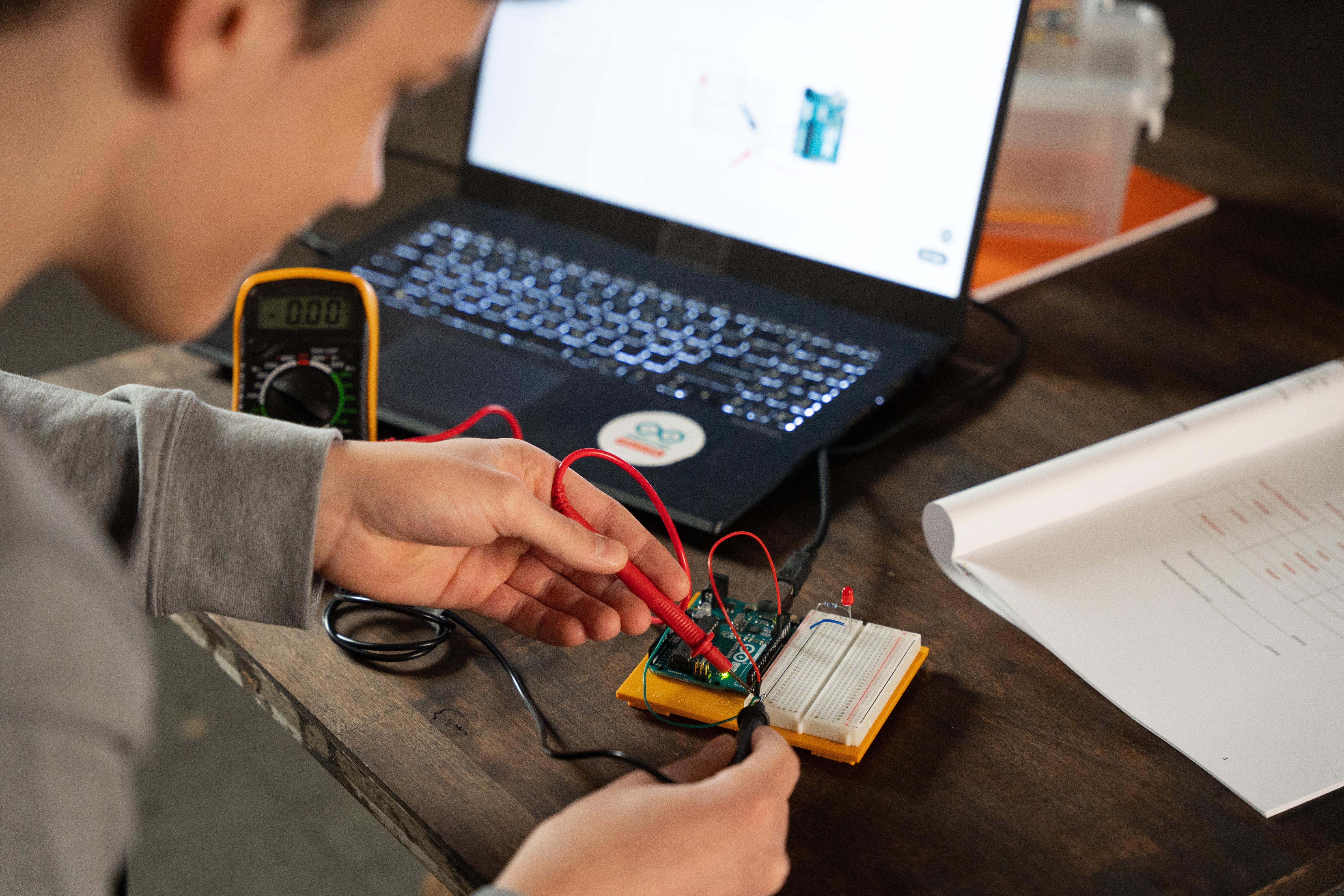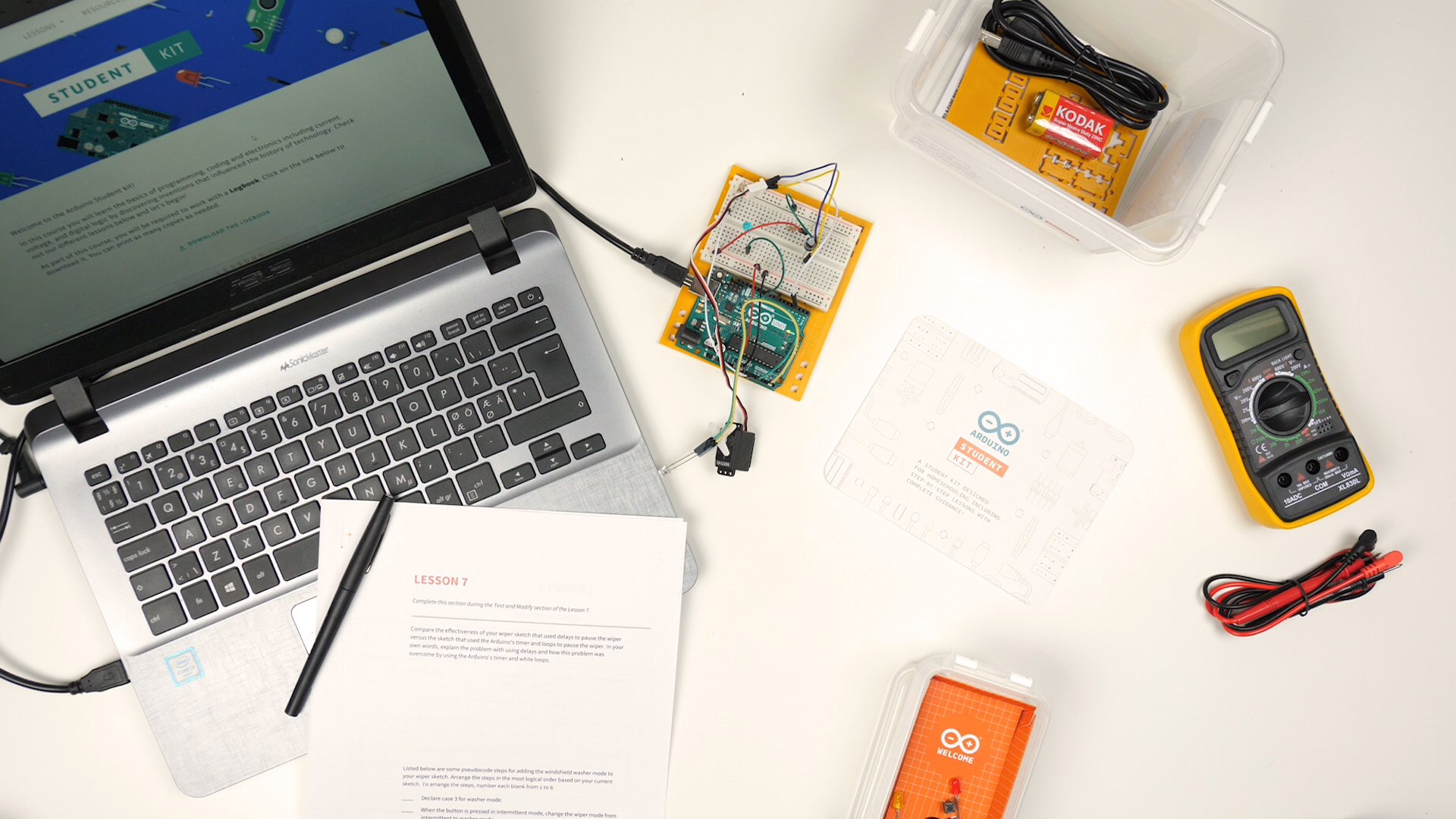How to get hands-on while learning remotely: the Arduino Student Kit
Penn State, or The Pennsylvania State University, is a land-grant institution that ranks as one of the best research universities in the world. It is one of the thousands of institutions worldwide affected by the coronavirus pandemic, with professors Herschel Pangborn and Pansy Leung of the Mechanical Engineering department finding new and innovative ways to teach remotely using the Arduino Student Kit.
Dedicated to education: Meet Herschel Pangborn & Pansy Leung
Dr. Herschel Pangborn is an Assistant Professor of Mechanical Engineering at Penn State. Graduating from the university with a B.Sc. in Mechanical Engineering in 2013, he offers a unique understanding when it comes to the needs and experiences of his students. Dr. Pansy Leung is the Director of Undergraduate Laboratories, and offers extensive expertise in mechanical engineering, previously working on an artificial heart during a post-doctoral position at the University of Arizona. What both professors share is a passion for students to learn using hands-on methods in order to equip themselves to solve real-world problems and learn how to create real-world solutions.

The Arduino effect
Herschel and Pansy had both previously used Arduino kits, and say that every experience they’ve had has been “very consistent and high-quality”. Therefore, when it came to ensuring that their students could have an affordable, innovative and hands-on experience even when they were forced to learn from home due to Covid-19, Arduino became the obvious choice. Whilst Herschel admits his junior engineering students were amused that he recommended a kit geared towards 11-13 year olds, once they discovered the open-ended potential for the kit, they used it across projects on their course. Sarah, Amy and Jonah, students studying on both the mechatronics and circuit analysis & instrumentation courses, were also quick to add how helpful they found the kit.
Sarah says
“the kit made a big difference to my understanding. As soon as I had it in front of me, I actually understood how circuits work in real life!”
In an age where hands-on learning has become challenging, the students were grateful to work with something physical, with Jonah adding that,
“the kit totally changed my remote learning experience. The Arduino Student Kit gave me an opportunity for hands-on learning in my own home, and that was a game changer.”
The department has also used Arduino kits in other ways, with one professor, Jessica Menold, having students use Arduino in their final presentations to build battling robots. In fact, it’s been a real departmental effort. Additional Penn State professors involved include Eric Marsh, Jean-Michel Mongeau, and Brian Foley. Many of the new lab procedures were drafted by PhD student Matthew Erdman, who served as Head TA for the course.

A problem solved for problem-solving
Pansy is keen for students to experience a lab environment from a more hands-on, problem-solving perspective, and was in the middle of an exciting project to transform her lab into a problem-based process when the pandemic hit. She says,
“Students will apply what they learned with Arduino at junior level to solve real problems, instead of just getting an understanding of the theory behind problem-solving”.
Herschel also supports this, explaining,
“Pansy is reinventing our lab so that our students understand that real-world connection. I think that’s been scientifically born out by pedagogical research, which says that just confirming equations with students in labs doesn’t really help them in terms of understanding better, either in theory or in application. They need the tools to get hands-on”.
Amy, a student on both the mechatronics and circuit analysis and implementation courses, added to Pansy’s point, saying,
“I feel more prepared for the real world because I now have experience building and troubleshooting these systems, knowledge I would not have without the Student Kit.”
Dr Pangborn and Dr Leung went on to confirm that the Arduino Student Kit has enabled their students to access tools using up-to-date technology, and that,
“they have a multimeter now which is something every engineer should have. They have their own bread boards and wires and I think they’re even going to use these things when they do their senior projects.”
Aside from what they learn in class, Jonah also added that he enjoys exploring what else Arduino has to offer in his spare time using the
“millions of online resources for inspiration!”.
What’s next for Arduino at Penn State?
As well as making the kit accessible at lab stations when face-to-face teaching can return, the professors at Penn State are hopeful that other classes will start to incorporate Arduino kits into their curriculum. Pansy is also working on a new project with her students using Arduino kits to create a solar panel circuit, along with sensors to measure power, pressure and temperature.
